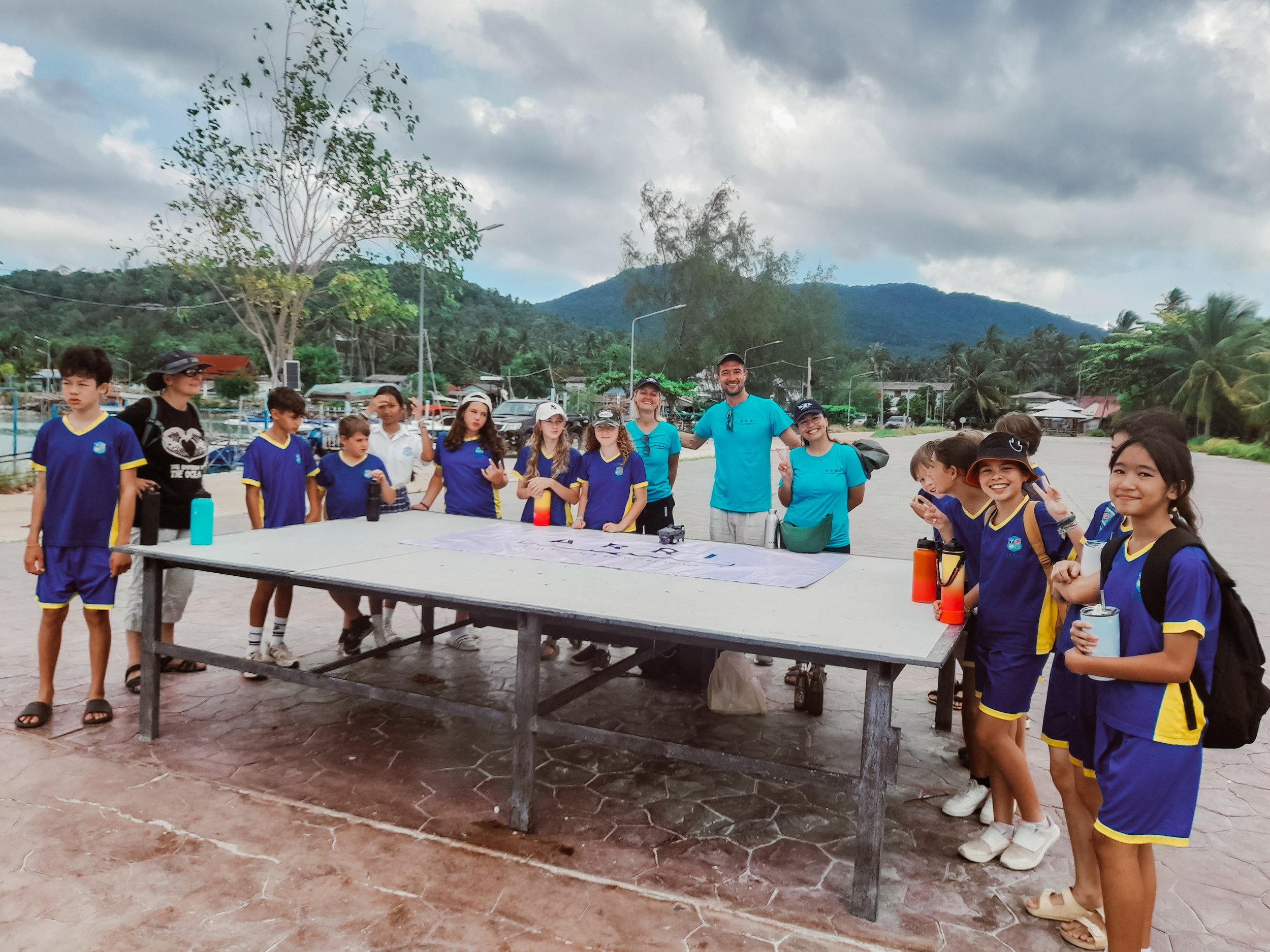GGGI Small Grant (2023) - Wolf Fish Ltd. (Thailand)
Project Summary
Aerial Recon and Recovery Initiative (ARRI) Thailand: Locating ALDFG Through Drone Surveying Across Surat Thani Environmental Protected Area
The Gulf of Thailand is one of the most active fishing locations globally. Gillnets are used extensively in this area and when lost, they can have serious impacts on the local ecology and both target and non-target species. ARRI’s two study sites - the islands of Koh Phangan and Koh Tao - are within the Surat Thani Environmental Protected Area, which is located directly south of this intensive fishing region. Reports from local marine conservation organizations indicate significant accumulations of Abandoned, Lost and Discarded Fishing Gear (ALDFG), primarily gillnets, which are continuously found entangled on the reefs surrounding these islands, posing a serious threat to local wildlife and the marine ecosystem.
To address this problem, the ARRI project focuses on utilizing unoccupied aerial vehicles (UAVs or “drones”) to conduct comprehensive aerial surveys of these coastal waters, aiming to locate and assess the extent of ALDFG presence, including quantity and type of gear, as well as any interactions with marine megafauna. To date, ARRI has conducted 4 comprehensive surveys surrounding the two islands, spanning 49 square kilometers of coastal habitat. This has resulted in the location of 1,303 pieces of ALDFG, encompassing a total area of 9,327.45 square meters of marine habitat, with some records of entangled wildlife.
ARRI’s efforts extend beyond solely aerial monitoring. Ongoing community clean-up events were successfully organized and implemented in collaboration with local stakeholders, such as dive centers, government departments, research centers and fishing communities. These clean-ups have resulted in the removal of 4 tons of ALDFG, contributing to local ecosystem restoration efforts. The ARRI team has completed a thorough analysis of the impact of ALDFG on these marine ecosystems, enhancing the understanding of local challenges and initiating the development of future conservation strategies.
Utilizing our aerial survey data, ARRI has applied ecological principles to create models that predict where ghost gear is likely to accumulate. This aids in identifying key areas to focus regular clean-up efforts. This outcome is significant and has broad implications for global initiatives aimed at reducing the impact of ALDFG on marine ecosystems. Looking ahead, ARRI’s mission is to continue monitoring ALDFG accumulation and to implement tailored recovery and recycling solutions within the region. We aim to continue raising awareness of the impacts of ALDFG locally, to foster a collective commitment towards the conservation and management of these local marine resources, and to mitigate the immediate threats from ALDFG.
Lost fish aggregating device (FAD).
Koh Phangan net recovery.
Koh Tao Cleanup, August 2023.
ALDFG on beach.
Koh Tao cleanup, November 2023.
ARRI team engaging with students at Si Ri Panya International School, November 2023.
ARRI Team Photo.
Cleanup Koh Tao Nov14, 2023.
Fishing Gear Impact on shark (photo by Kat Mason).
ALDFG washed up on beach.
Koh Tao cleanup August, 2023.
ARRI team engaging with students at Si Ri Panya International School, November 2023.
ALDFG in water column, June 2023.
Lost FAD in water column, May 2023.















